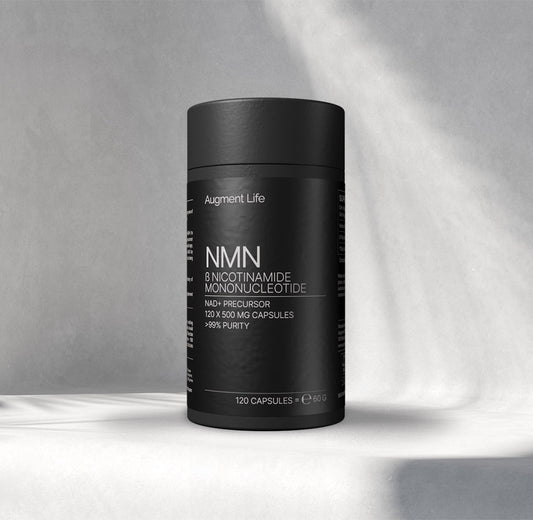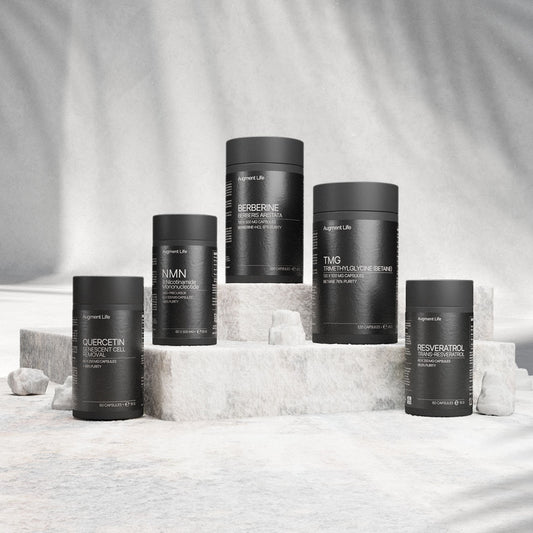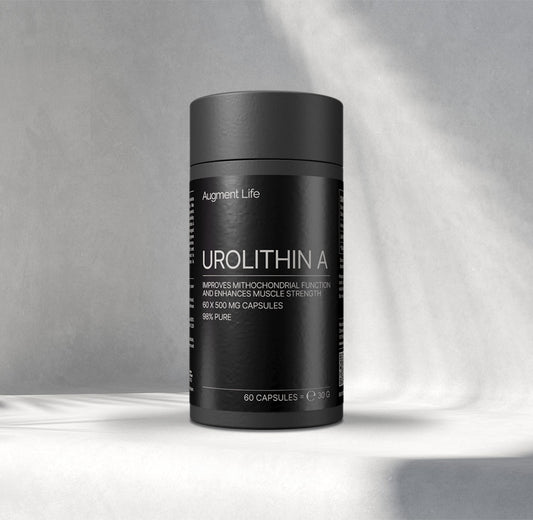Ginseng is a famous plant whose root has been used in traditional medicine for hundreds of years. It is full of potent active ingredients like ginsenosides and offers an array of health benefits.
However, the many health benefits ginseng provides us with may be overshadowed by a lack of safety studies. When taken in smaller doses for a shorter period, ginseng seems to be safe, but there are some uncertainties.
Keep reading the article and find out what can ginseng do for you and how to safely take it as a supplement.
What is ginseng?
Ginseng is a common name for the plant roots of the Panax family. Two of the most common species are Asian (lat. Panax ginseng) and American ginseng (lat. Panax quinquefolius). These plants have been used in medicine, especially traditional Chinese medicine, for centuries.
Ginseng root has an oval shape with extended root cords, partially resembling a squid. The root is the part of the plant filled with several active ingredients, mostly belonging to the chemical group of ginsenosides/saponines. Some of the most represented ones are:
- oleanane,
- octillol,
- dammarane,
- sapogenins.
Other active compounds belong to nonsaponins and miscellaneous chemicals, such as:
- lysophosphatidic acids,
- sugars and polysaccharides,
- oils and organic acids,
- vitamins and minerals.
Ginseng supplements often claim they contain ginseng extracts, but don't possess any of the formerly mentioned compounds. That's why it's important to double-check the labels before purchasing any ginseng-containing or ginseng-derived products.
Ginseng - Health Benefits
Based on its complex chemical composition, ginseng exhibits various health benefits and helpful properties, such as:
- antioxidative properties,
- anti-inflammatory properties,
- antimicrobial activity,
- anti-cardiovascular disease activity,
- anti-obesity,
- antidiabetic effect,
- enhancing energy and sexual activity.
There are several health benefits of ginseng proven in human studies (1):
- increased energy,
- better cognitive function,
- potential to treat erectile dysfunction,
- protection against obesity and type 2 diabetes development,
- boosting immunity.
Ginseng - Safety
As a plant that has traditionally been used for thousands of years all over the world, ginseng has been thoroughly scientifically studied in many aspects but safety. Some of the first studies on ginseng came out during the 1950s, but they have since mostly focused on the consequences of ginseng's misuse or overdose with 1.5-15 gram of ginseng extract taken daily.
What is now clear from those studies is that ginseng's misuse can cause:
- maniac episodes,
- uterine bleeding,
- allergies,
- Steven's Johnsons Syndrome,
- heart failure.
It should be noted that only long-term use and very high doses of ginseng were responsible for causing these adverse effects (2).
However, although regarded as safe, even smaller doses of ginseng cause mild toxic effects, such as:
- diarrhea,
- skin rashes,
- headaches,
- nervousness,
- insomnia,
- depression.
It is also known that ginseng should never be taken with some medications, like:
- warfarin or aspirin (drugs used to reduce high blood pressure),
- type 2 diabetes medicine,
- some cancer treatments,
- some anti-depressants.
More extensive research on ginseng's safety and potential long-term usage is necessary. Always talk to your physician or pharmacist before taking any new supplements, especially if you are pregnant, breastfeeding, or already taking other drugs and/or supplements.
Ginseng - Dosage
Because the studies on ginseng's safety are lacking, currently it's not possible to determine an exact dose for each intended purpose of taking the supplement. In general, it seems that lower doses (from 250 mg to 1 gram a day for up to 6 months) may be beneficial and safe (3).
Literature:
- Ratan ZA, Haidere MF, Hong YH, Park SH, Lee JO, Lee J, Cho JY. Pharmacological potential of ginseng and its major component ginsenosides. J Ginseng Res. 2021 Mar;45(2):199-210. doi: 10.1016/j.jgr.2020.02.004.
- Paik DJ, Lee CH. Review of cases of patient risk associated with ginseng abuse and misuse. J Ginseng Res. 2015 Apr;39(2):89-93. doi: 10.1016/j.jgr.2014.11.005.
- Lee NH, Yoo SR, Kim HG, Cho JH, Son CG. Safety and tolerability of Panax ginseng root extract: a randomized, placebo-controlled, clinical trial in healthy Korean volunteers. J Altern Complement Med. 2012 Nov;18(11):1061-9. doi: 10.1089/acm.2011.0591.












